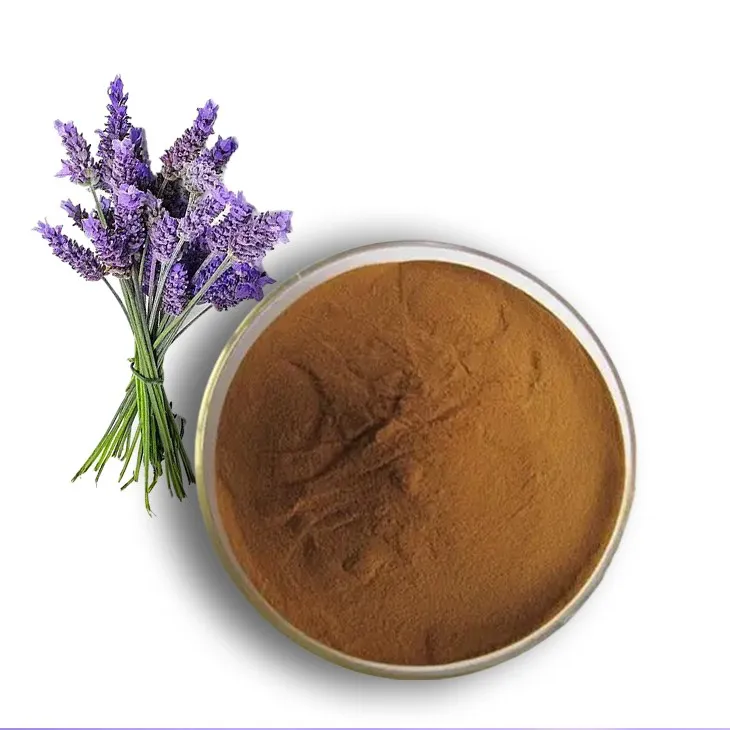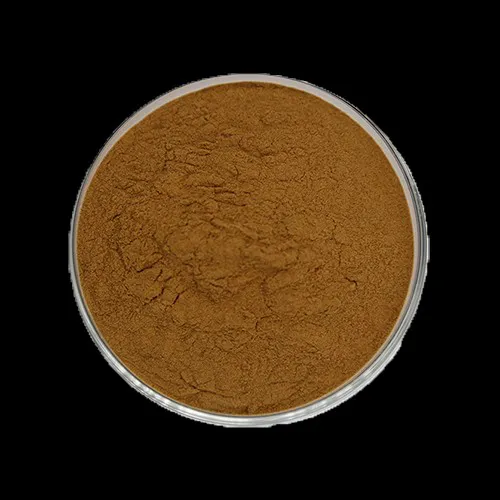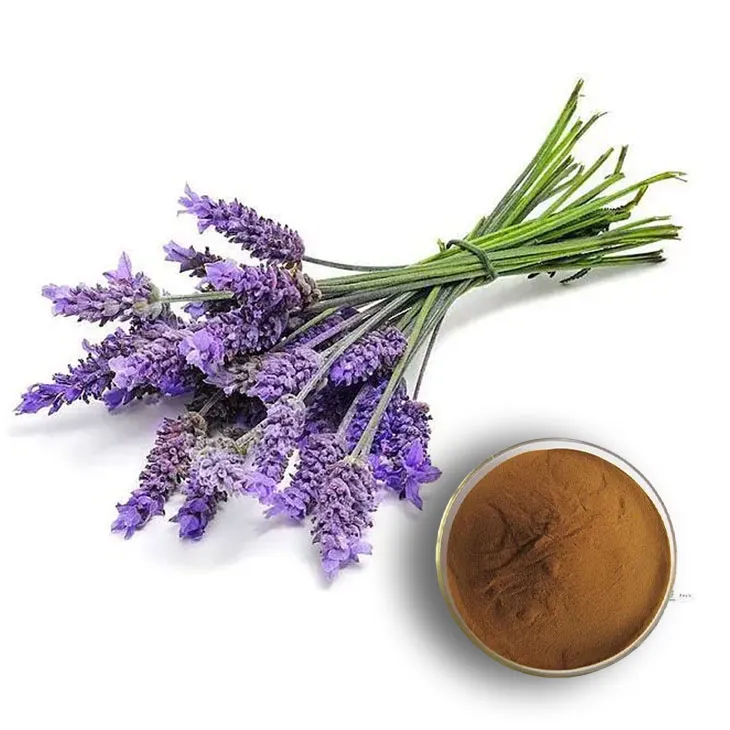- 0086-571-85302990
- sales@greenskybio.com
Lavender extract: a botanical medicine for treating anxiety, insomnia, etc.
2024-11-14

1. Introduction to Lavender Extract
Lavender Extract has emerged as a remarkable plant - based medicine with significant potential in treating various conditions, especially anxiety and insomnia. Lavender, known scientifically as Lavandula, has a long - standing history in traditional medicine that spans centuries. This herbaceous plant is native to the Mediterranean region but is now cultivated worldwide for its numerous beneficial properties.
The extract of lavender is obtained through various methods, such as steam distillation in the case of lavender essential oil, which is one of the most common forms of Lavender Extract. Other extraction methods may also be used to isolate different bioactive compounds present in the plant for medicinal use.

2. Bioactive Compounds in Lavender Extract
Lavender extract contains numerous bioactive compounds that are responsible for its therapeutic effects. One of the key groups of compounds are the terpenoids, which include linalool and linalyl acetate. Linalool is a monoterpene alcohol that has been shown to possess sedative and anxiolytic (anti - anxiety) properties. It interacts with the body's physiological systems in a way that can influence mood and relaxation.
Another important compound is flavonoids, which are known for their antioxidant and anti - inflammatory properties. These flavonoids in lavender extract may play a role in reducing oxidative stress in the body, which is often associated with various health problems including those related to anxiety and sleep disorders.
Moreover, phenolic acids are also present in lavender extract. These compounds contribute to the overall pharmacological activity of the extract and may be involved in its ability to modulate neurotransmitter function.

3. Lavender Extract in Treating Anxiety
3.1. Regulation of Neurotransmitters
When it comes to anxiety, lavender extract can play a crucial role in regulating the neurotransmitters in the brain. The brain's neurotransmitter system is complex, and stress - related neurotransmitters such as cortisol can become overactive in individuals with anxiety disorders. Lavender extract, through its bioactive compounds, can help to reduce this overactivity.
For example, linalool in lavender extract has been shown to interact with the GABA (gamma - aminobutyric acid) receptor. GABA is an inhibitory neurotransmitter that helps to calm the nervous system. By enhancing the activity of GABA receptors, linalool can reduce the excitability of neurons in the brain, which in turn can alleviate anxiety symptoms.
3.2. Stress - Relief Mechanisms
In addition to neurotransmitter regulation, lavender extract may also act on the body's stress response system at a more holistic level. It can help to lower the overall physiological arousal associated with stress. This may be achieved through its effects on the autonomic nervous system, specifically by promoting a shift towards the parasympathetic nervous system, which is responsible for the body's "rest - and - digest" functions.
Research has shown that inhaling lavender essential oil can reduce the levels of stress hormones in the body. This reduction in stress hormones can lead to a decrease in the physical symptoms of anxiety, such as a rapid heart rate, sweating, and muscle tension.

4. Lavender Extract in Treating Insomnia
4.1. Influence on Circadian Rhythm
For insomnia, lavender extract may influence the body's circadian rhythm. The circadian rhythm is an internal biological clock that regulates the sleep - wake cycle. Disruptions to this rhythm can lead to insomnia and other sleep disorders.
Lavender extract may help to reset or regulate this internal clock. It can act on the suprachiasmatic nucleus (SCN), which is the master clock in the brain. By influencing the SCN, lavender extract can promote a more normal sleep - wake pattern, making it easier for individuals to fall asleep at the appropriate time.
4.2. Promotion of Relaxation
Another way in which lavender extract can be beneficial for insomnia is by promoting relaxation. The same bioactive compounds that are involved in reducing anxiety, such as linalool, can also help to relax the body and mind.
When the body is in a relaxed state, it is more conducive to falling asleep. Lavender extract can reduce muscle tension and mental agitation, creating an environment that is favorable for sleep onset and improving sleep quality throughout the night.
5. Forms of Lavender Extract Administration
5.1. Lavender Essential Oil
Lavender essential oil is one of the most popular forms of lavender extract for therapeutic use. It can be used in aromatherapy, either through inhalation using a diffuser or by directly smelling the oil from a bottle. Inhalation of lavender essential oil has been shown to have immediate effects on mood and relaxation.
It can also be used topically, although it should be diluted with a carrier oil such as coconut oil or jojoba oil before application to the skin. When used topically, it may have a local relaxing effect on the muscles and can also be absorbed into the bloodstream to some extent, although the systemic effects may be less pronounced compared to inhalation.
5.2. Capsules
Lavender extract in the form of capsules is another option. These capsules usually contain a standardized amount of lavender extract, which allows for more precise dosing. The extract in the capsules is typically absorbed through the digestive system and can have systemic effects on the body.
However, it is important to note that the bioavailability of the active compounds may be different when taken orally compared to inhalation or topical application. The digestive process may break down some of the compounds, but overall, capsules can be a convenient way to consume lavender extract for those who prefer not to use essential oils or teas.
5.3. Teas
Lavender tea is a traditional form of consuming lavender extract. The tea is made by steeping dried lavender flowers in hot water. Drinking lavender tea can have a calming effect on the body and mind.
The active compounds are released into the water during the steeping process, and when consumed, they can be absorbed through the digestive tract. However, the concentration of the active compounds in tea may be lower compared to essential oils or capsules, and the effects may be more subtle and longer - lasting.
6. Comparison with Synthetic Drugs
One of the major advantages of lavender extract as a treatment for anxiety and insomnia is its natural origin. This makes it an appealing alternative to synthetic drugs. Synthetic drugs often come with a range of side effects, some of which can be quite severe.
For example, many anti - anxiety medications can cause drowsiness, dizziness, and dependence over time. In contrast, lavender extract, when used appropriately, is generally considered to have fewer side effects. However, it is important to note that even natural products can cause allergic reactions in some individuals, especially those with sensitivities to plants in the Lamiaceae family, to which lavender belongs.
Another advantage of lavender extract is its holistic approach to treating these conditions. While synthetic drugs may target specific neurotransmitter systems, lavender extract can work on multiple physiological systems simultaneously, including the nervous system, the endocrine system, and the immune system. This multi - faceted approach may lead to more comprehensive and long - lasting effects in treating anxiety and insomnia.
7. Research and Clinical Evidence
There has been a growing body of research on the effectiveness of lavender extract in treating anxiety and insomnia. In clinical trials, lavender essential oil has been shown to significantly reduce anxiety levels in patients. For example, in a study comparing the effects of lavender essential oil inhalation to a placebo, the group receiving lavender oil showed a marked decrease in self - reported anxiety symptoms.
Similarly, in studies on insomnia, lavender extract has demonstrated positive results. Some studies have shown that using lavender - scented products in the bedroom, such as lavender - infused pillow sprays, can improve sleep quality and reduce the time it takes to fall asleep.
However, more research is still needed to fully understand the mechanisms of action of lavender extract and to establish optimal dosing regimens. Additionally, research should also focus on long - term effects and potential interactions with other medications.
8. Precautions and Considerations
While lavender extract is generally considered safe, there are some precautions to be aware of. As mentioned earlier, some individuals may be allergic to lavender. Allergic reactions can range from mild skin rashes to more severe respiratory symptoms in rare cases.
When using lavender essential oil, it should be used in moderation. Over - inhalation or excessive topical application can potentially cause irritation. In pregnant or breastfeeding women, it is advisable to consult a healthcare provider before using lavender extract, as there is limited research on its safety in these populations.
Also, when taking lavender extract in the form of capsules, it is important to follow the recommended dosage instructions carefully. Taking excessive amounts may lead to unwanted side effects, although the likelihood of severe toxicity is relatively low.
9. Conclusion
Lavender extract is a promising botanical medicine for treating anxiety, insomnia, and potentially other related conditions. Its natural origin, multiple bioactive compounds, and diverse mechanisms of action make it an attractive option for those seeking alternative treatments.
With continued research, we can expect to gain a more in - depth understanding of how lavender extract works and how to optimize its use. However, it is important to use lavender extract with caution, taking into account individual sensitivities and following proper usage guidelines.
FAQ:
Q1: How does lavender extract regulate neurotransmitters in the brain for anxiety?
Lavender extract contains bioactive compounds. These compounds can interact with the brain's physiological systems. They may work on the neurons directly or through influencing related regulatory mechanisms in the brain, which helps to reduce the overactivity of stress - related neurotransmitters, thus playing a role in regulating neurotransmitters for anxiety.
Q2: In what forms can lavender extract be used for treating insomnia?
Lavender extract can be used in forms such as essential oils, capsules, and teas for treating insomnia. Essential oils can be used in aromatherapy, for example, by diffusing in the bedroom to promote relaxation. Capsules can be taken orally to introduce the active compounds into the body. Teas made from lavender extract can also be consumed, and different forms may have different levels of effectiveness depending on the individual.
Q3: Are there any side effects of using lavender extract?
Compared to synthetic drugs, lavender extract, due to its natural origin, often has fewer side effects. However, some people may be allergic to lavender extract, and in rare cases, improper use (such as excessive use of essential oils on the skin) may cause skin irritation. But overall, it is relatively safe when used appropriately.
Q4: How does lavender extract influence the body's circadian rhythm for insomnia?
The exact mechanism by which lavender extract influences the circadian rhythm is still under research. But it is believed that its bioactive compounds may interact with the body's hormonal and neural systems related to the circadian rhythm. By promoting relaxation and adjusting certain physiological states, it helps the body to better adapt to the normal day - night cycle, thus improving insomnia.
Q5: Can lavender extract be used alone to treat severe anxiety?
While lavender extract has shown potential in treating anxiety, for severe anxiety cases, it may not be sufficient to be used alone. It can be part of a comprehensive treatment plan, which may include other therapies such as psychotherapy and in some cases, the use of other medications. However, it can still play a beneficial role in alleviating symptoms and reducing stress - related neurotransmitter overactivity.
Related literature
- The Efficacy of Lavender Extract in Anxiety Disorders: A Review"
- "Lavender and Sleep: Understanding the Mechanisms of Lavender Extract in Insomnia Treatment"
- "Bioactive Compounds in Lavender Extract and Their Impact on Neurotransmitter Regulation"
- ▶ Hesperidin
- ▶ citrus bioflavonoids
- ▶ plant extract
- ▶ lycopene
- ▶ Diosmin
- ▶ Grape seed extract
- ▶ Sea buckthorn Juice Powder
- ▶ Beetroot powder
- ▶ Hops Extract
- ▶ Artichoke Extract
- ▶ Reishi mushroom extract
- ▶ Astaxanthin
- ▶ Green Tea Extract
- ▶ Curcumin Extract
- ▶ Horse Chestnut Extract
- ▶ Other Problems
- ▶ Boswellia Serrata Extract
- ▶ Resveratrol Extract
- ▶ Marigold Extract
- ▶ Grape Leaf Extract
- ▶ blog3
- ▶ blog4
- ▶ blog5
-
Organic Tongkat Ali extract powder factory.
2024-11-14
-
How to make powder with ashwagandha extract.
2024-11-14
-
Rosehip extract manufacturers from China.
2024-11-14
-
The best cat's claw extract in nature.
2024-11-14
-
Chinese Dandelion Leaf Extract Suppliers.
2024-11-14
-
Coix Seed Extract
2024-11-14
-
Red Date Extract
2024-11-14
-
Panax Ginseng Leaf Extract
2024-11-14
-
Polygonum multiflorum extract
2024-11-14
-
Hops Extract
2024-11-14
-
Lycopene
2024-11-14
-
Tormentil Extract
2024-11-14
-
Lemon Extract
2024-11-14
-
Green coffee bean Extract
2024-11-14
-
Citrus Aurantii Extract
2024-11-14





















